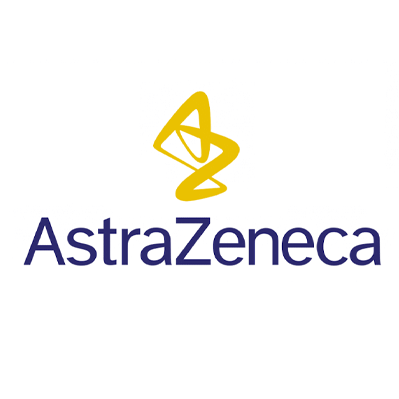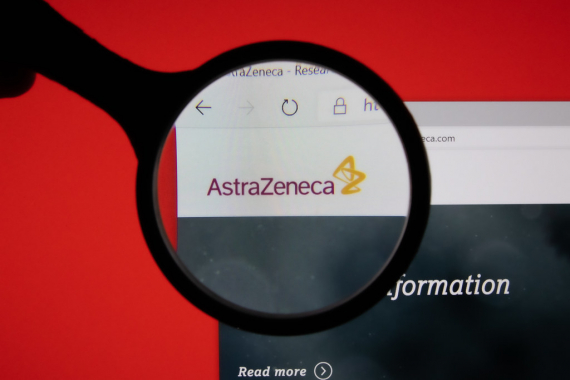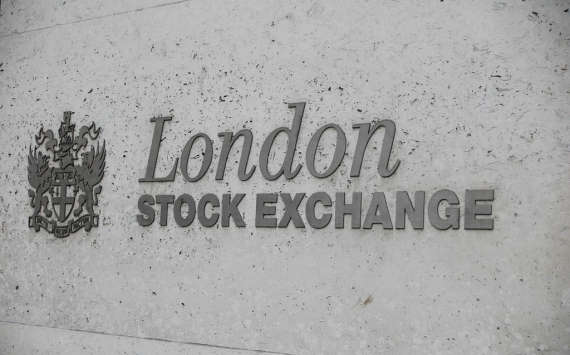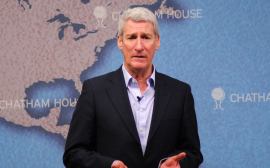Description
AstraZeneca is a British-Swedish multinational pharmaceutical and biotechnology company with its headquarters at the Cambridge Biomedical Campus in Cambridge, England. It has a portfolio of products for major diseases in areas including oncology, cardiovascular, gastrointestinal, infection, neuroscience, respiratory, and inflammation. It has been involved in developing the Oxford-AstraZeneca COVID-19 vaccine.
The company was founded in 1999 through the merger of the Swedish Astra AB and the British Zeneca Group (itself formed by the demerger of the pharmaceutical operations of Imperial Chemical Industries in 1993). Since the merger it has been among the world's largest pharmaceutical companies and has made numerous corporate acquisitions, including Cambridge Antibody Technology (in 2006), MedImmune (in 2007), Spirogen (in 2013) and Definiens (by MedImmune in 2014). It has its research and development concentrated in three strategic centres: Cambridge, England; Gothenburg, Sweden and Gaithersburg in Maryland, U.S.
AstraZeneca has a primary listing on the London Stock Exchange and is a constituent of the FTSE 100 Index. It has secondary listings on Nasdaq OMX Stockholm, Nasdaq New York, the Bombay Stock Exchange and on the National Stock Exchange of India.
History
Astra AB was founded in 1913 in Södertälje, Sweden, by 400 doctors and apothecaries. In 1993 the British chemicals company ICI (established from four British chemical companies) demerged its pharmaceuticals businesses and its agrochemicals and specialities businesses, to form Zeneca Group PLC. Finally, in 1999 Astra and Zeneca Group merged to form AstraZeneca plc, with its headquarters in London. In 1999, AstraZeneca identified a new location for the company's US base, the "Fairfax-plus" site in North Wilmington, Delaware.
2000–06
In 2002, its drug Iressa (gefitinib) was approved in Japan as monotherapy for non-small cell lung cancer.[13] On 3 January 2004 Dr Robert Nolan, a former director of AstraZeneca, formed the management team of ZI Medical.
In 2005, the company acquired KuDOS Pharmaceuticals, a UK biotech company, for £120 million. and entered into an anti-cancer collaboration agreement with Astex It also announced that it had become a Diamond Member of the Pennsylvania Bio commerce organisation.
In 2006, following a collaborative relationship begun in 2004, AstraZeneca acquired Cambridge Antibody Technology for £702 million.
2007–12: The patent cliff and subsequent acquisitions
In February 2007, AstraZeneca agreed to buy Arrow Therapeutics, a company focused on the discovery and development of anti-viral therapies, for US$150 million. AstraZeneca's pipeline, and "patent cliff", was the subject of much speculation in April 2007 leading to pipeline-boosting collaboration and acquisition activities. A few days later AstraZeneca acquired US company MedImmune for about US$15.2 billion to gain flu vaccines and an anti-viral treatment for infants; AstraZeneca subsequently consolidated all of its biologics operations into a dedicated biologics division called MedImmune.
In 2010, AstraZeneca acquired Novexel Corp, an antibiotics discovery company formed in 2004 as a spin-off of the Sanofi-Aventis anti-infectives division. Astra acquired the experimental antibiotic NXL-104 (CEF104) (CAZ-AVI) through this acquisition.
In 2011, AstraZeneca acquired Guangdong BeiKang Pharmaceutical Company, a Chinese generics business.
In February 2012, AstraZeneca and Amgen announced a collaboration on treatments for inflammatory diseases. Then in April 2012, AstraZeneca acquired Ardea Biosciences, another biotechnology company, for $1.26 billion. In June 2012, AstraZeneca and Bristol Myers Squibb announced a two-stage deal for the joint acquisition of the biotechnology company Amylin Pharmaceuticals. It was agreed that Bristol Myers Squibb would acquire Amylin for $5.3 billion in cash and the assumption of $1.7 billion in debt, with AstraZeneca then paying $3.4 billion in cash to Bristol Myers Squibb, and Amylin being folded into an existing diabetes joint venture between AstraZeneca and Bristol Myers Squibb.
2013
In March 2013 AstraZeneca announced plans for a major corporate restructuring, including the closure of its research and development activities at Alderley Park in Cheshire and Loughborough in the UK and at Lund in Sweden, investment of $500 million in the construction of a new research and development facility in Cambridge and the concentration of R&D in three locations: Cambridge, Gaithersburg, Maryland (location of MedImmune, where it will work on biotech drugs), and Gothenburg in Sweden, for research on traditional chemical drugs. AstraZeneca also announced that it would move its corporate headquarters from London to Cambridge in 2016. That announcement included the announcement that it would cut 1,600 jobs; three days later it announced it would cut an additional 2,300 jobs. It also announced that it would focus on three therapeutic areas: Respiratory Inflammation & Autoimmunity, Cardiovascular & Metabolic Disease, and Oncology. In October 2013, AstraZeneca announced it would acquire biotech oncology company Spirogen for around US$440 million.
2014
On 19 May 2014 AstraZeneca rejected a "final offer" from Pfizer of £55 per share, which valued the company at £69.4 billion (US$117 billion). The companies had been meeting since January 2014. If the takeover had proceeded, Pfizer would have become the world's biggest drug maker. The transaction would also have been the biggest foreign takeover of a British company. Many in Britain, including politicians and scientists, had opposed the deal. In July 2014 the company entered into a deal with Almirall to acquire its subsidiary Almirall Sofotec and its lung treatments including the COPD drug, Eklira. The US$2.1 billion deal included an allocation of US$1.2 billion for development in the respiratory franchise, one of AstraZeneca's three target therapeutic areas announced the year before. In August 2014 the company announced it had entered into a three-year collaboration with Mitsubishi Tanabe Pharma on diabetic nephropathy. In September 2014 the company would join forces with Eli Lilly in developing and commercialising its candidate BACE inhibitor – AZD3292 – used for the treatment of Alzheimer's disease. The deal could yield up to US$500 million for the company. In November 2014 the company's biologics R&D operation, MedImmune, agreed to acquire Definiens for more than US$150 million. The company also began a Phase I/II trial collaboration with Pharmacyclics and Janssen Biotech investigating combination treatments. Also in November of the same year, the company agreed to sell its lipodystrophy treatment business to Aegerion Pharmaceuticals for more than US$325 million. In December, the company received accelerated FDA approval for Olaparib in the treatment of women with advanced ovarian cancer who have a BRCA genetic mutation. A major criterion governing the drugs approval was, on average, its ability to shrink tumours in patients for 7.9 months.
2015
In February, the company announced it would acquire the US and Canadian rights to Actavis's branded respiratory drug business for an initial sum of US$600 million. Later in the same month the company announced it would partner with Orca Pharmaceuticals to develop retinoic acid-related orphan nuclear receptor gamma inhibitors for use in the treatment of a number of autoimmune diseases, which could generate up to US$122.5 million for Orca. The company also announced its plan to spend US$40 million creating a new subsidiary focused on small molecule anti-infectives – primarily in the research of the gyrase inhibitor, AZD0914, which is currently in Phase II for the treatment of gonorrhea. The company underwrote twenty out of thirty-two seats of a new Cambridge– Gothenburg service by Sun-Air of Scandinavia.
In mid-March the company announced it would co-commercialise naloxegol along with Daiichi Sankyo in a deal worth up to US$825 million. Towards the end of April the company announced a number of collaborations worth an estimated US$1.8 billion; first, to develop and commercialise MEDI4736, with Celgene, for use against non-Hodgkin’s lymphoma, myelodysplastic syndromes, and multiple myeloma with AstraZeneca receiving US$450 million. The second of two deals is an agreement to study a combination treatment of MEDI4736 and Innate Pharma's Phase II anti-NKG2A antibody IPH2201 for up to US$1.275 billion. The company's MedImmune arm also launched collaborative clinical trials with Juno Therapeutics, investigating combination treatments for cancer. The trials will assess combinations of MEDI4736 and one of Juno Therapeutics' CD19 directed chimeric antigen receptor T-cell candidates. In late June the company announced it has entered into a partnership agreement with Eolas Therapeutics on the Eolas Orexin-1 Receptor Antagonist (EORA) program for smoking cessation and other treatments. In July the company announced it would sell off its rights to Entocort (budesonide) to Tillotts Pharma for US$215 million. In July 2015, Genzyme announced it would acquire the rare cancer drug Caprelsa (vandetanib) from AstraZeneca for up to US$300 million. In August, the company announced it had acquired the global rights to develop and commercialise Heptares Therapeutics' drug candidate HTL-1071, which focuses on blocking the adenosine A2A receptor, in a deal worth up to US$510 million. In the same month the company's MedImmune subsidiary acquired exclusive rights to Inovio Pharmaceuticals' INO-3112 immunotherapy, currently in Phase I/II, under an agreement which could net more than US$727.5 million for Inovio. INO-3112 targets Human papillomavirus types 16 and 18. In September, Valeant licensed Brodalumab from the company for up to US$445 million. On 6 November it was reported that AstraZeneca had acquired ZS Pharma for US$2.7 billion. In December the company announced its intention to acquire the respiratory portfolio of Takeda Pharmaceutical – namely Alvesco and Omnaris – for US$575 million A day later, the company announced it had taken a 55% majority stake in Acerta for US$4 billion. As part of the transaction the company will gain commercial rights to Acerta's irreversible oral Bruton's tyrosine kinase inhibitor, acalabrutinib (ACP-196), which is currently in Phase III development for B-cell blood cancers and in Phase I or II clinical trials in solid tumours. In 2015, it was the eighth-largest drug company in the world based on sales revenue.
2017
In July 2017, the company's CEO Pascal Soriot said that Brexit would not affect its commitment to its current plans in the United Kingdom. However, it had slowed decision making for new investment projects waiting for a post-Brexit regulatory regime to settle down.
In September 2017, the company's chairman Leif Johansson planned in taking the "first steps" in moving its research and manufacturing operations away from the United Kingdom, if there is a hard Brexit.
In 2017, it was the eleventh largest drug company in the world based on sales and ranked seventh based on R&D investment.
In January EVP Pam Cheng stated that AstraZeneca has ignited startup of duplicate QA testing facility in Sweden and has initiated hiring in Sweden.
2018
In February 2018, AstraZeneca announced it was spinning off six early-stage experimental drugs into a new biotechnology company, known as Viela Bio, valued at US$250 million.
2019
In March 2019, AstraZeneca announced it will pay up to US$6.9 billion to work with Daiichi Sankyo Co Ltd on an experimental treatment for breast cancer. AstraZeneca plans to use some of the proceeds of a US$3.5 billion share issue to fund the deal. The deal on the drug known as trastuzumab deruxtecan sent shares in Japan's Daiichi soaring 16%.
In September 2019, the company announced that it would cease drug production at its German headquarters in Wedel, leading to the loss of 175 jobs by the end of 2021.
In October 2019, AstraZeneca announced it would sell the global commercial rights for its drug to treat acid reflux to German pharmaceutical company Cheplapharm Arzneimittel GmbH for as much as US$276 million.
2020
In February 2020, AstraZeneca agreed to sublicense its global rights (except Europe, Canada and Israel) to the drug Movantik, to Redhill Biopharma.
In June 2020, AstraZeneca made a preliminary approach to Gilead Sciences about a potential merger, worth almost US$240 billion. However, these plans were subsequently dropped because it would have distracted the company from its own pipeline and ongoing COVID-19 vaccine efforts.
In July 2020, the business entered into its second collaboration with Daiichi Sankyo, centred around the development of DS-1062, an antibody drug conjugate. The deal could potentially be worth up to US$6 billion for Daiichi.
In September 2020, AstraZeneca acquired the preclinical oral PCSK9 inhibitor program from Dogma Therapeutics.
On 27 December 2020, AstraZeneca CEO Pascal Soriot said that they have “figured out the winning formula” with their two-dose system with the Oxford University’s COVID-19 vaccine.
On 30 December 2020, the United Kingdom approved the emergency use of the Oxford–AstraZeneca COVID-19 vaccine.
2021
In July 2021, AstraZeneca acquired Alexion Pharmaceuticals.
In October the company, through Alexion, acquired Caelum Biosciences and its monoclonal treatment (CAEL-101) for light chain (AL) amyloidosis for up to $500 million.
























